
College of Sociology

Create original learning from a wide range of themes.
Approach a variety of problems surrounding us in our daily lives.
Look for the field of study that interests you from a variety of perspectives.
Acquire foundational knowledge based on sociology, learn fieldwork methods, and approach solutions to social issues from diverse fields of research. This course emphasizes the process of learning in the field, questioning common sense in approaching problems, and presenting solutions.
Cultivate the ability to understand contemporary society from the three perspectives of local communities (people), resources (things), and institutions (systems), and visit actual sites and conduct surveys and research through fieldwork to gain skills in investigation, discovery, inquiry, management, and problem-solving. In the third year, students choose a seminar that aligns with their interests from 10 areas of research including cultural anthropology, folklore, environmental studies, tourism studies, museum studies, and sports sociology, as they explore the theme of their own research.
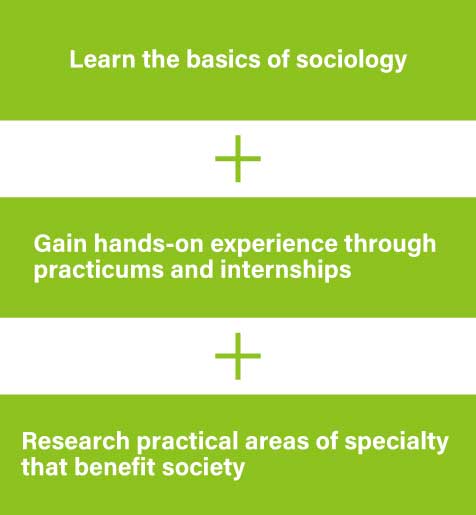
POINT 1
Study contemporary society from the perspectives of local communities (people), resources (things), and institutions (systems).
Acquire foundational knowledge to understand contemporary society from the three perspectives of local communities (people), resources (things), and institutions (systems).
POINT 2
Experience-based learning of diverse social activities through fieldwork.
Visit different places, conduct interviews, gather data, administer surveys, participate in rituals, and more as you gather firsthand data and develop skills of investigation, discovery, inquiry, management, and problem-solving.
POINT 3
From 10 areas of research
Explore research topics and delve deeper into your studies through seminars.
Acquire the ability to work autonomously on contemporary social issues. Then, explore ways to solve these issues and think of how to build a better society.
Qualifications and Licenses
First-Class Junior High School Teaching License (Social Studies), First-Class Senior High School Teaching License (Civics), Museum Curator, Social Welfare Director (Employment Qualifications), Childhood Guidance Counselor (Employment Qualifications), Social Researcher, Child Welfare Officer (Employment Qualifications)*
* Qualifications that can be obtained under certain conditions:
Domestic Travel Service Supervisor, General Travel Service Supervisor, Biotope Manager, Environmental Regeneration Doctor, Microsoft Office Specialist (MOS), IT Passport Exam, Multimedia Certification, CG Creator Exam, Web Designer Exam, Web Design Skills Test, Information Security Management Exam, Basic Information Technology Engineer Exam, Applied Information Technology Engineer Exam, Practical English Proficiency Test, TOEIC®, Practical French Proficiency Test, Japanese Language Proficiency Test, World Heritage Test
Future career paths
Travel: Tour Conductor, Tour Planner, Counter Sales, Theme Park Staff, Land Operator, Travel Coordinator, Local Guide Overseas, Travel Writer, Restaurant/ Banquet Staff, Hotel Staff Railway and Aviation: Passenger Service Staff, Station Staff
Environment And Nature: Environmental Consultant, Environmental Analysis Technician, Nature Guide, Park Ranger Art: Museum Curator, Museum Staff, Excavation Researcher Sports: Sports Organization Staff, Sports Media Public Service and Non-Profit: National Civil Servant, Local Civil Servant, Police, Natural Park Foundation Staff Schools: Junior High School Teacher (Social Studies), Senior High School Teacher (Civics), School Staff General Companies in the Wholesale, Retail, Service, and IT Industries: General Affairs, Human Resources/Labor Management, PR/Advertising, Sales

Learning about different cultures makes us reexamine norms. Learn perspectives that examine the modern age and its globalization.

Casual, everyday life can be a place of discovery. Investigate, trace, and consider traditions and changes to everyday life.

Connect a variety of learnings and themes to explore new kinds of tourism and experience the depth and appeal of this field.
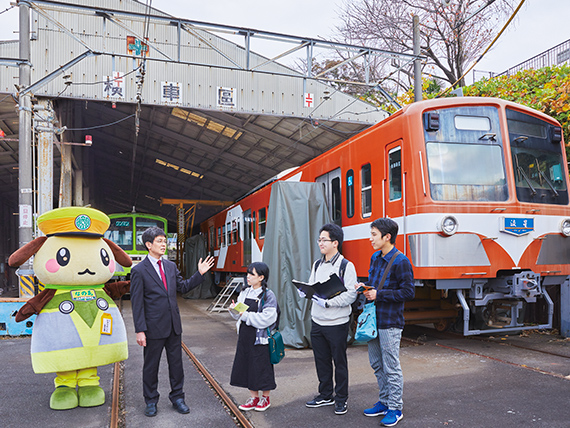
Think about regional revitalization through "theme park-ization" of regions and create new regional value.

Consider diverse environments from different perspectives and experiences and explore their relationship with people, society, and nature.
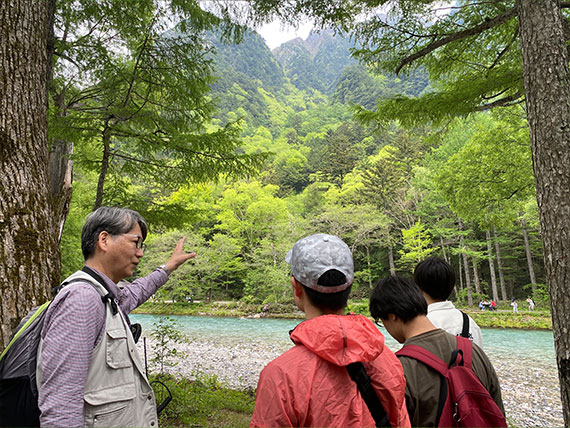
Consider ways to protect and utilize the nature in "protected areas" such as national parks and address local issues involving nature.

Gain expertise in arts and crafts, archaeological sites, historical buildings, and conservation of cultural properties by visiting actual sites and interacting with real objects.
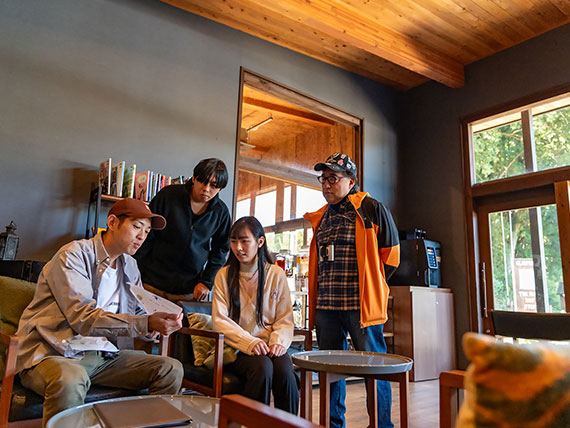
Understand the meaning and role of “experiencing and enjoying free time” and consider the concept of life design.

Gain practical experience through volunteering in the J-League and explore the challenges and potential of sports in its relationship to society.

Consider the role and value of competitive sports and lifelong sports in modern society.
Discover the theme of your research and delve in from different perspectives

Head to fields directly related to areas of specialty with professors who continue their research with a field-based approach! Experience the importance and enjoyment of learning in the field. Choose four programs related to specialties in different areas of research to learn the basics of fieldwork.

Gain deeper understanding of the specialized knowledge in different areas of research as well as fieldwork techniques. For example, a student with the theme "Revitalization of the Tourism Industry" would conduct research and visitations on tourism resources, then plan a trip, create an itinerary, and create a travel brochure based on this.
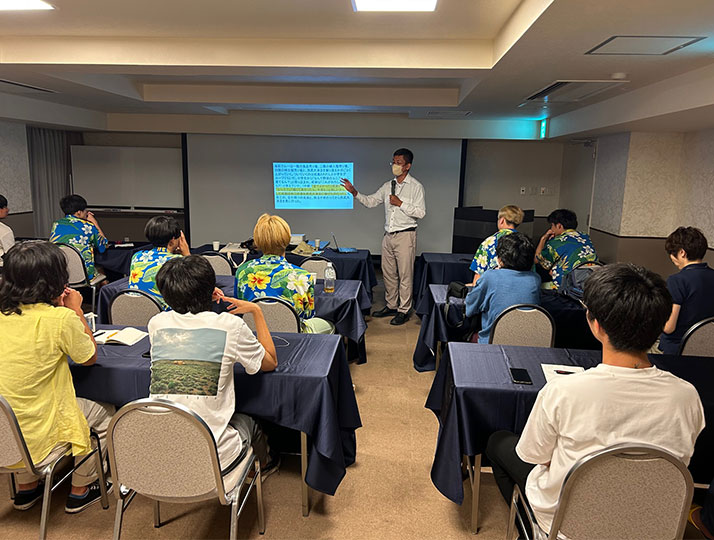
Gain an even deeper understanding of what you've learned in Contemporary Society & Field Training as you approach the subject of your research from a more specialized perspective. Choose from multiple programs, do sufficient preliminary study, then perform fieldwork that includes overnight stays within Japan. Join multiple programs for interdisciplinary learning across research areas.

Study world heritage sites in Europe, natural environment conservation and tourism efforts in Australia, or tourism policies in the multi-ethnic nation of Singapore... Visit sites to conduct fieldwork using the knowledge gained from your studies. Engage with different cultures, understand diverse values, and hone your ability to identify the issues facing the international community.
Fieldwork is a method of research in which researchers visit sites to observe directly and conduct investigations that include interviews and data collection.
The fieldwork program at Edogawa University consists of pre- and post-training at the university and fieldwork conducted off-campus and is structured so that even first-year students may join.